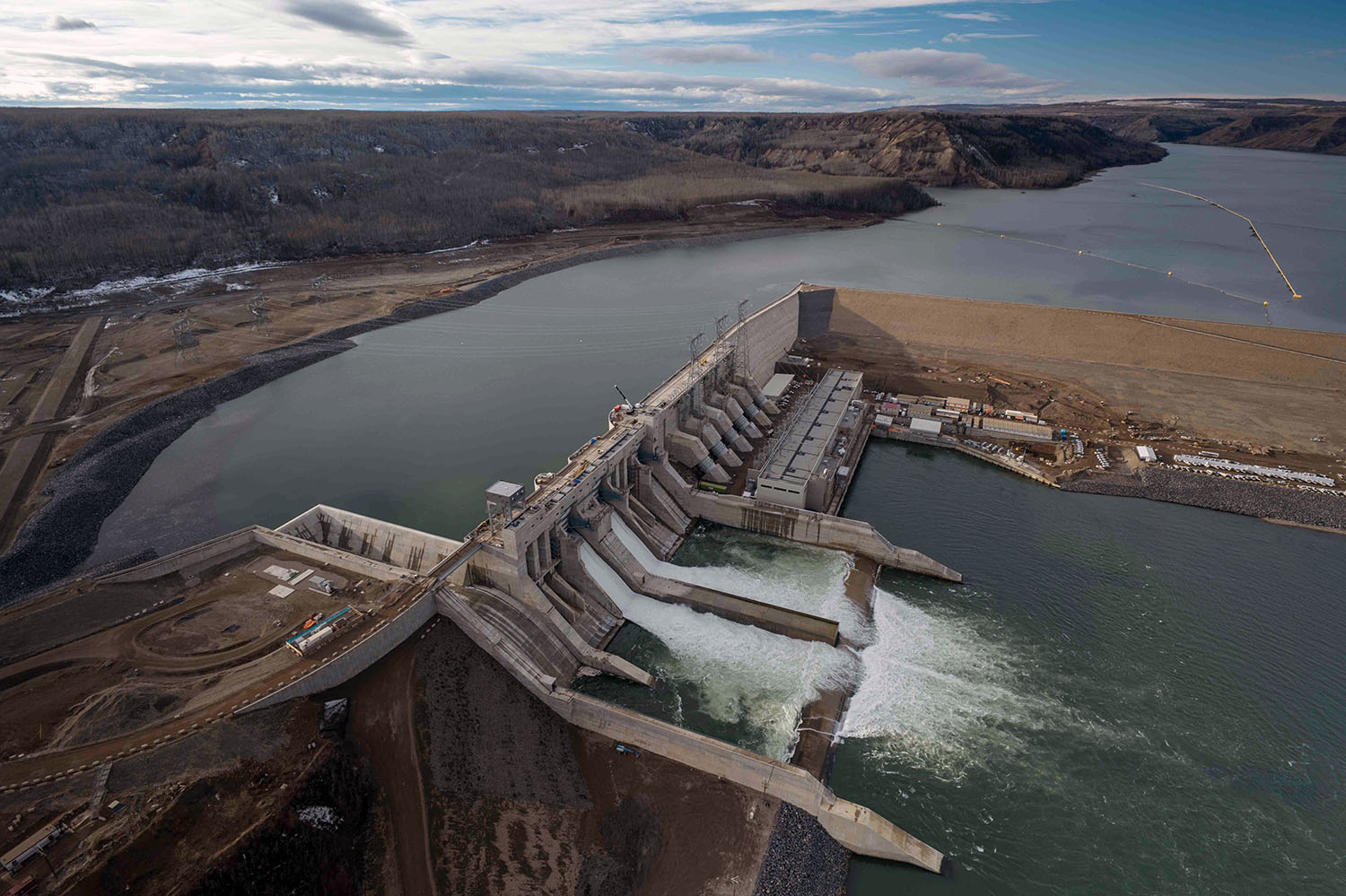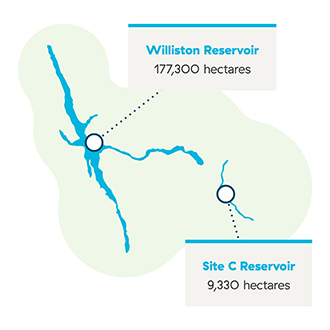Filling the reservoir nav
Site C reservoir filling is complete
Reservoir filling began on August 25, 2024 and took about 11 weeks to complete.
With the reservoir filled, we are able to to put the generating station, spillways, turbines and generators into operation.
Filling the reservoir increased the water level at the dam site by about 43 metres and created permanent changes to the shoreline.
For public safety, we strongly urge people to stay away from the reservoir and the surrounding slopes during reservoir filling and for at least one year post-fill.
Public boat launches are closed until at least spring 2026.
Watch this video to see the Site C reservoir filling process.
As expected, debris is accumulating behind the debris boom. Debris removal is paused during the winter months and will resume in the spring.
Wildlife monitoring is taking place in the reservoir area.

Above: The Site C dam site on November 6, 2024.
See more photos in our gallery.
About the Site C reservoir
- The Site C reservoir is 83 kilometres long between Fort St. John and Hudson's Hope
- The reservoir covers about 5,550 hectares of land, with a total surface area of about 9,330 hectares.
- The final depth of the reservoir varies: 52 metres close to the dam, 36 metres at Halfway River, and 18 metres near Hudson's Hope.
See videos about reservoir filling, slope stability, boater safety and more.
Protecting wildlife in the reservoir area
Reducing impacts to wildlife is a top priority of the Site C project. We've taken comprehensive measures to avoid, reduce or offset potential impacts on wildlife in the reservoir area.
If you see an animal in distress, please contact the B.C. Conservation Officer Service through the Report All Poachers and Polluters (RAPP) Hotline at 1-877-952-7277.
Clearing the reservoir area began years in advance of filling. We have removed trees and vegetation from the dam site and the reservoir area to ensure boater safety and reduce impacts to dam construction and operations.
Reservoir clearing and debris management activities have taken place and continued through 2024. This includes road construction, logging, hauling timber to local mills and waste wood burning.
We recognize the importance of reservoir filling, and the impacts on local communities and Indigenous peoples. We’ll continue to communicate with Indigenous Nations and all stakeholders in the Peace Region, including local government and residents.
Prior to filling the reservoir, more than 20 regulatory approvals were met. In addition to these authorizations, reservoir filling considers BC Hydro’s operation of the Peace River system, both up and downstream impacts, environmental and weather constraints, as well as the construction progress.
Resources
Filling the reservoir factsheet PDF • 3.8 MB
Site C reservoir safety factsheet PDF • 376 KB
